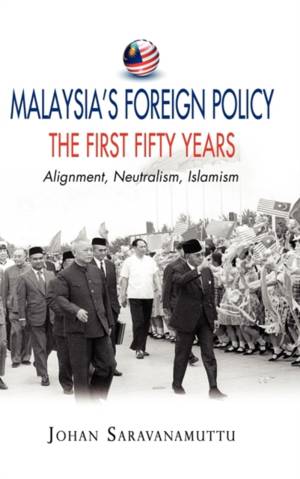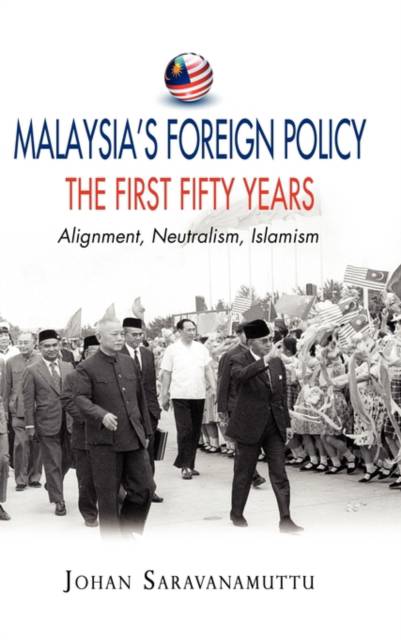
- Afhalen na 1 uur in een winkel met voorraad
- Gratis thuislevering in België vanaf € 30
- Ruim aanbod met 7 miljoen producten
- Afhalen na 1 uur in een winkel met voorraad
- Gratis thuislevering in België vanaf € 30
- Ruim aanbod met 7 miljoen producten
Zoeken
Malaysia's Foreign Policy, the First Fifty Years
Alignment, Neutralism, Islamism
Johan Saravanamuttu
Hardcover | Engels
€ 65,95
+ 131 punten
Omschrijving
This book captures Malaysia's foreign policy over the first fifty years and beyond since the date of the country's formal independence in 1957. The author provides "macro-historical" narratives of foreign policy practices and outcomes over distinct time periods under the tenures of the five prime ministers. One chapter delves into relations with immediate neighbouring states and another chapter analyses the political economy of foreign policy. A postscript deals with the transition of foreign policy beyond the fifth decade. The concluding chapter suggests that Malaysian middlepowermanship has been in the making in foreign policy practice being particularly evident since the Mahathir years. Employing a critical-constructivist approach throughout the study, the author posits that foreign policy should be appreciated as outcomes of socio-political-economic processes embedded within a Malaysian political culture. In terms of broad policy orientations, Malaysian foreign policy over five decades has navigated over the terrains of neutralism, regionalism, globalization and Islamism. However, the critical engagement of civil society in foreign policy construction remains a formidable challenge.
Specificaties
Betrokkenen
- Auteur(s):
- Uitgeverij:
Inhoud
- Aantal bladzijden:
- 416
- Taal:
- Engels
Eigenschappen
- Productcode (EAN):
- 9789814279796
- Verschijningsdatum:
- 27/08/2010
- Uitvoering:
- Hardcover
- Formaat:
- Genaaid
- Afmetingen:
- 152 mm x 229 mm
- Gewicht:
- 775 g

Alleen bij Standaard Boekhandel
+ 131 punten op je klantenkaart van Standaard Boekhandel
Beoordelingen
We publiceren alleen reviews die voldoen aan de voorwaarden voor reviews. Bekijk onze voorwaarden voor reviews.











